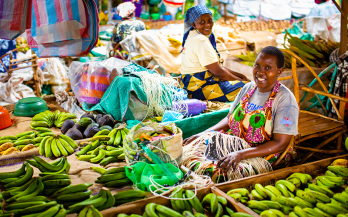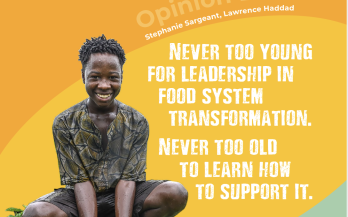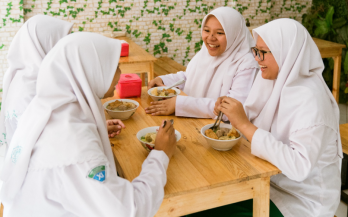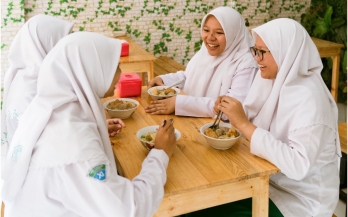- 09/09/2025
I-CAN presents a new playbook offering step-by-step guidance to embedding nutrition-sensitive ambition and action into nationally determined contributions (NDCs). Drawing on I-CAN experience support climate-nutrition integration in different countries, it highlights practical entry points, resources, and provides policy examples to create nutrition–climate win-wins across food systems, health, agriculture, and social protection. By aligning nutrition with climate goals, countries can strengthen food and health systems, advance progress on the SDGs, and pursue the Paris Agreement 1.5 °C target.
- 28/08/2025
The Countdown then undertook a consultative process to select a set of 50 indicators across these themes, which constitutes the global indicator framework. The Countdown publishes annual monitoring updates and additional analysis to support the transformation of food systems so they become equitable, sustainable, and resilient and positively contribute to achieving the 2030 SDGs and other global goals.
- 26/08/2025
We know in our bones that youth must be part of the solution to the key crises facing
our planet – but why and how exactly? Here we provide government policymakers,
business people, civil society members and development partners in the food systems
space with some ways to advance meaningful youth engagement.
- 20/08/2025
The global burden of malnutrition, poor mental health, depression, and noncommunicable diseases (NCDs) continues to grow, contributing significantly to mortality
and poor health, reduced productivity, and economic stagnation. With over 60% of the
population engaged in the workforce and spending more than half of their adult lives at
work, the workplace offers a strategic platform to address these challenges. One
important aspect of worker wellbeing is nutrition, which fuels the body, improves
cognitive and immune function, and reduces sick days and NCD risk.
- 19/08/2025
The global burden of malnutrition, poor mental health, depression, and non-communicable diseases (NCDs) continues to grow, contributing significantly to mortality and poor health, reduced productivity, and economic stagnation. With over 60% of the population engaged in the workforce and spending more than half of their adult lives at work, the workplace offers a strategic platform to address these challenges. One important aspect of worker wellbeing is nutrition, which fuels the body, improves cognitive and immune function, and reduces sick days and NCD risk.
- 12/08/2025
Clear measures of progress on food system transformation can provide decision-makers with the visibility to course-correct to realise desired impacts and can help ensure accountability. To this end, there is a need to develop, test, and validate novel methods and metrics for assessing food systems transformation. To ensure that such work is grounded in local food system stakeholders’ needs, GAIN consulted national stakeholders across four Asian countries (Bangladesh, India, Indonesia, and Pakistan) to identify priority indicator gaps for monitoring food systems transformation. These consultations drew from an analysis of each country’s food system transformation pathway, existing indicators, and the results from similar stakeholder workshops in Africa. National stakeholder workshops were held with diverse participants in three of the countries, while stakeholder interviews were used in India.
Across all countries, some similar themes emerged, such as sustainable and climate-smart agriculture, small and medium-sized enterprises, food safety and quality, consumption behaviour, policy alignment, and food system governance. There was a strong focus on policy actions, sustainability, and resilience as crosscutting themes. Women and youth were mentioned as groups requiring particular attention in metrics development, including the wage disparities between men and women, inclusion of women and youth in decision-making process, and youth access to finance and agri-business. The results from the workshops will be used to inform GAIN’s future work in developing metrics and methods to understand and help countries track their food systems transformation.
- 25/07/2025
Since the lead-up to the UNFSS, we have been supporting countries to draw up pathways to better food systems, and to begin walking the talk. But many constraints still hinder progress, and reforms are sorely needed.
That’s why we have worked with governments to develop and implement a series of practical tools to strengthen policy decision making processes and capacities. These are tools created to give users a hand over major, common barriers. They are also designed to align with or to support ongoing national processes, such as monitoring plans, or indeed continental and transnational ambitions, including the Comprehensive Africa Agriculture Development Programme (CAADP), and the seven aspirations of Agenda 2063 which call for a more prosperous, integrated, democratic, peaceful, pan- African, people-driven, and influential Africa by 2033.
The tools collected here can be instrumental: in diagnosing food systems to identify critical gaps and untapped opportunities; in shaping nimble action plans in line with national priorities; in identifying much-needed policy reforms to ensure sectors act alongside each other, rather than against; and in providing new ways to effectively navigate political, financial, and technical impediments. Barriers have stood in the path of meaningful progress for too long – we must break through them.
- 22/07/2025
N3F’s 2024 Nutrition Impact: Expanding Access to Nutritious Foods Across Sub-Saharan Africa
The Nutritious Foods Financing Facility (N3F) released its first impact report, underscoring a strong selection of impactful investees enhancing nutrition across Sub-Saharan Africa. In 2023, the N3F portfolio collectively produced or facilitated access to over 647 million servings of nutritious food products, reaching an estimated 3 million end-consumers, the majority of whom are low- and middle-income households.
- 21/07/2025
Understanding Moments of Change in Food Systems Transformation
Four years on from the UN Food Systems Summit, how well are we progressing in transforming food systems so that they reduce hunger, increase access to healthy diets, reduce climate emissions, improve climate resilience, create good jobs, and nurture the environment? The numbers tell a mixed story. According to the Food Systems Countdown Initiative, itself a creation of the UNFSS, only 20 of 42 global food system indicators are trending positively (1), with none fast enough to meet 2030 SDG goals. These numbers are important but inevitably reliant on data that are 2–3 years out of date.
- 21/07/2025
Malnutrition in all its forms continues to be a major public health challenge worldwide, and progress on improving it has been very slow, with no country on track to meet global nutrition goals and the number of people affected by hunger or unable to afford a healthy diet rising in recent years.









